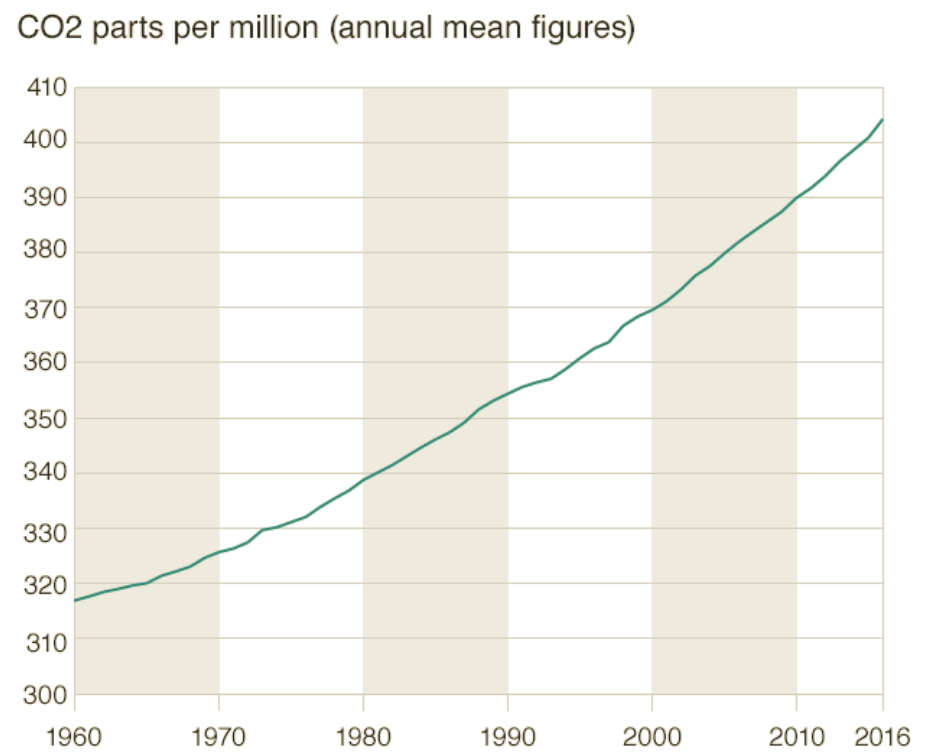According to the World Meteorological Organization (WMO), the concentrations of carbon dioxide in the Earth's atmosphere surged to a record high in 2016. This is very much a record we didn't want to see broken.
Last year's increase was 50% higher than the average increase seen over the past 10 years. 2016 saw average concentrations of CO2 hit 403.3 parts per million, up from 400ppm in 2015.
Researchers say a combination of human activities and the El Niño weather phenomenon has driven carbon dioxide concentration in the atmosphere to a level not seen in 800,000 years. Scientists say this risks making global temperature targets largely unattainable.
The figures published by the WMO represent the CO2 that is left in the atmosphere after significant amounts are absorbed by the Earth's "sinks", which include the oceans and the biosphere.
"It is the largest increase we have ever seen in the 30 years we have had this network," Dr Oksana Tarasova, chief of WMO's global atmosphere watch programme, told BBC News.
"The largest increase was in the previous El Niño, in 1997-1998, and it was 2.7ppm; and now it is 3.3ppm. It is also 50% higher than the average of the last 10 years."
This year's greenhouse gas bulletin produced by the WMO is based on measurements taken in 51 countries. Research stations dotted around the globe measure concentrations of warming gases including carbon dioxide, methane and nitrous oxide.
The Role of Heat Pumps
Heat pumps are a low carbon technology, and as the opportunity to play an increasingly important role in our low carbon future. As more low and zero carbon technologies are used to generate our electricity, so too the carbon emissions from heat pump use reduce.
Indeed, as fossil fuels are phased out in heating, we will switch to an electric economy. Heat pumps are by far the most efficient way to utilise electrical energy to produce heat. This ties up the UK's Clean Growth Strategy recently published by the Department for Business, Energy & Industrial Strategy (BIES), in which the Government states an aim to phase out new fossil fuel installations in new builds in the next decade.
To find out more about our range of heat pumps, please follow the link below:



